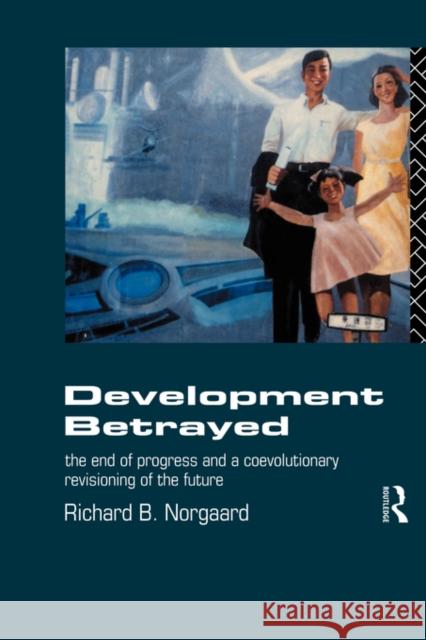Development Betrayed: The End of Progress and a Co-Evolutionary Revisioning of the Future » książka
Development Betrayed: The End of Progress and a Co-Evolutionary Revisioning of the Future
ISBN-13: 9780415068628 / Angielski / Miękka / 1994 / 296 str.
Development Betrayed: The End of Progress and a Co-Evolutionary Revisioning of the Future
ISBN-13: 9780415068628 / Angielski / Miękka / 1994 / 296 str.
(netto: 296,66 VAT: 5%)
Najniższa cena z 30 dni: 302,19
ok. 22 dni roboczych.
Darmowa dostawa!
Modernity promised control over nature through science, material abundance through technology and effective government through rational, social organization. Instead of leading to this promised land it has brought us to the brink of environmental and cultural disaster. Why has there been this gap between modernity's aspirations and its achievements? Development Betrayed offers a powerful answer to this question.
Development with its unshakeable commitment to the idea of progress, is rooted in modernism and has been betrayed by each of its major tenets. Attempts to control nature have led to the brink of environmental catastrophe. Western technologies have proved inappropriate for the needs of the South, and governments are unable to respond effectively to the crises that have resulted.
Offering a thorough and lively critiques of the ideas behind development, Richard Norgaard also offers an alternative co-evolutionary paradigm, in which development is portrayed as a co-evolution between cultural and ecological systems. Rather than a future with all peoples merging to one best way of knowing and doing things, he envisions a future of a patchwork quilt of cultures with real possibilities for harmony.
Modernity promised control over nature through science, material abundance through technology and effective government through rational, social organization. Instead of leading to this promised land it has brought us to the brink of environmental and cultural disaster. Why has there been this gap between modernity's aspirations and its achievements? Development Betrayed offers a powerful answer to this question.
Development with its unshakeable commitment to the idea of progress, is rooted in modernism and has been betrayed by each of its major tenets. Attempts to control nature have led to the brink of environmental catastrophe. Western technologies have proved inappropriate for the needs of the South, and governments are unable to respond effectively to the crises that have resulted.
Offering a thorough and lively critiques of the ideas behind development, Richard Norgaard also offers an alternative co-evolutionary paradigm, in which development is portrayed as a co-evolution between cultural and ecological systems. Rather than a future with all peoples merging to one best way of knowing and doing things, he envisions a future of a patchwork quilt of cultures with real possibilities for harmony.











